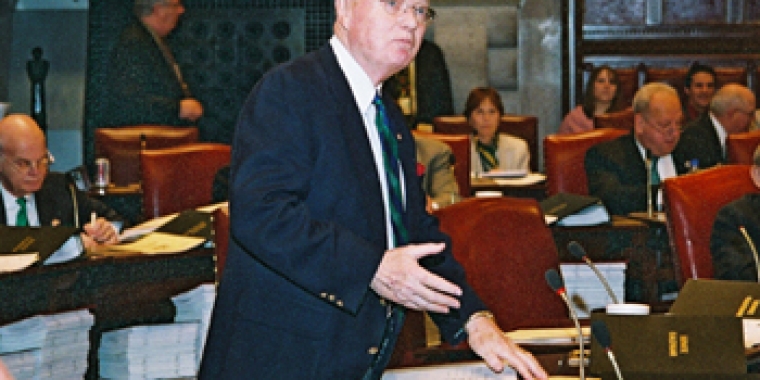
Senator Farley Announces Tougher Laws Passed To Ensure Safer Roads

In this recent Session, the Legislature worked on toughening penalties for violations of the vehicle and traffic laws. Hopefully, these measures will help ensure that drivers think twice before being aggressive on the highway.
The Legislature approved a bill (S.4584), which the Governor signed into law (Chapter 49), that increases the criminal penalties for leaving the scene of an accident when someone is killed to up to seven years in prison. Under the provisions of the bill, jail time and fines would be increased for all levels of leaving the scene violations. A first violation for leaving the scene of an accident resulting in personal injury will now be a class A misdemeanor and any subsequent violations will be a class E felony. Leaving the scene of an accident resulting in serious personal injury or death will become a class D felony.
The Legislature also enacted "Vasean's Law" which Governor Pataki signed into law (Chapter 39), to increase penalties for drivers who kill or seriously injure other people while driving under the influence of drugs or alcohol. VaSean's Law was named after eleven year old VaSean Phillip Alleyne, who was killed last year by a drunk driver who could not be charged with a felony under current law. This law makes it easier for district attorneys to prosecute drivers for vehicular assault and vehicular manslaughter when they cause death or serious injury as a result of driving under the influence of drugs or alcohol.
The Senate also approved and the Governor signed into law the Work Zone Safety Act of 2005 (Chapter 223). This legislation is a key step toward increasing motorist and worker safety in highway work zones. It calls for a 60-day license suspension when an individual is convicted of two or more speeding violations in a work zone; mandates the presence of police and radar speed display devices in major work zones; creates a public education program funded by a $50 surcharge on all speeding violations in work zones; and requires the Department of Transportation to discuss with laborers and contractors the safety and design of work zones before construction begins. It should be noted that, under existing State law, the fines are doubled if a person is speeding in a work zone.



